IN the next couple of days some very important and possibly life changing/life threatening events have been scheduled.
We are getting down to the wire folks. The BIRTHPAINS are increasing rapidly. Time to watch them closely, get your Godly Timepieces out and time them. The prophecies are coming to pass, truth is being revealed, deception is running rampant to counteract it, darkness is getting darker, and God’s Grace is reaching those who are LOST AND SEARCHING. Not everyone who is lost is searching. Or at least no searching for truth.
If you are not a person who is familiar with Bible Prophecy and the Book of Revelation now would be a good time to change that. Get familiar. Read the books. Study the books. Watch videos about the books. Learn the Scriptures. You will be amazed as you watch them unfolding in real time.
There are certain things that must happen. Some good, some not so good, some very scary and some exciting and exhilarating! Anyone who thinks the Christian walk is boring and confining, does not know anything. I literally mean anything. Because until you walk by the spirit of GOD, you just don’t have a clue.
If you don’t think it is a worthwhile pursuit to learning about the end times, just remember the elite who run the world know exactly what is coming. Because they are lead by demonic spirits, who have been waiting for this time for thousands of years.
Let’s take a look at what is just ahead, even at the door.
spacer
DO NOT MISS THIS FIRST VIDEO!! IT LAYS OUT THE GROUNDWORK AND REVEALS VITAL TRUTH YOU NEED TO UNDERSTAND WHAT IS HAPPENING!!
spacer
Pope: Synod Assembly of Bishops to be held in 2023 and 2024

By Devin Watkins
The Synod of Bishops’ meetings in the Vatican—originally scheduled to be held in October 2023—will now also take place in October 2024, as part of the same Synod but held in 2 sessions.
Pope Francis announced the extension of the Synod on Synodality when speaking to pilgrims in St. Peter’s Square at the Angelus address on Sunday.
Extended discernment
He noted that the first phase of the 16th Ordinary General Assembly of the Synod of Bishops opened on 10 October 2021, which is focused on listening and discernment.
The Pope said there are already many first fruits from the ongoing Synod, but added that more time is needed in order for them to become fully mature.
Pope Francis said he hoped this decision will “favor the comprehension of synodality as a constitutive element of the Church, and help everyone to live it as a journey of brothers and sisters who bear witness to the joy of the Gospel.”
Further details from Synod Secretariat
Following the Pope’s announcement, the General Secretariat of the Synod released a press communique to explain the decision, saying the Apostolic Constitution Episcopalis Communio allows for the possibility of multiple sessions of the same Synod.
The Synod Secretariat said the extension fits in well with the ongoing synodal journey, since the Synod is “not an event but a process in which the whole People of God is called to walk together toward what the Holy Spirit helps it to discern as being the Lord’s will for His Church.”
The pair of sessions spread out over a year will therefore form a “journey within the journey” with the goal of fostering a more mature reflection.
True Believer’s in Christ are not a spiritual search or journey, we are not looking for ways to challenge ourselves to make ourselves stronger, we are not looking to build our wisdom by studying the works of others, we are not looking to build our kingdom or to leave our mark on the world. We are not looking for approval, acceptance, or praise.
We KNOW who we are IN CHRIST! Hallelujah! We know that we can do nothing in and of ourselves. We know that GOD has a plan for our lives, and HE leads us to walk in it. WE KNOW that the WORD OF GOD is TRUTH. We know that the BLOOD OF CHRISI is the only way to Salvation. We know that HE who has begun a good work in us will be faithful to complete it. We know that the things of this world are passing away, and the only true treasure is in heaven. We store up treasures in heaven by following GOD. We have the peace which passes understanding. It comes from KNOWING that GOD is in CONTROL! We do not judge others, as we know from whence we came. We love everyone and pray for the lost. We forgive everyone, because we are forgiven. We do our best to encourage others to come to JESUS, but we do not ever try to force anyone. But, we know that JESUS CHRIST is the ONLY way of salvation. He is truly GOD and truly MAN. He is the sacrificial lamb, given once for all No man comes to the Father but by HIM.
spacer
-
LETTERS FROM THE SYNOD – 2023: #1
REPORTS AND COMMENTARY, FROM ROME AND ELSEWHERE, ON THE SYNOD ON SYNODALITY: “FOR A SYNODAL CHURCH – COMMUNION, PARTICIPATION, MISSION”

WHAT, EXACTLY, IS THIS “SYNOD”?
The Annuario Pontificio, the Holy See’s yearbook, is one of the most important Vatican publications, including detailed information on the officials of the Holy See and the Roman Curia, on the membership of the College of Cardinals, on the global episcopate, and on every diocese and religious institute in the world. The 2023 edition clocks in at a hefty 2,278 pages, within which is a wealth of data on institutional Catholicism, the world’s largest and most complex religious body.
SPACER
Praedicate evangelium: Pope Francis reforms Roman Curia with launch of Vatican constitution
It will take full effect on June 5, the Solemnity of Pentecost. Under the new constitution, all the Vatican’s main departments are now known as “dicasteries.” The powerful Vatican Congregation for the Doctrine of the Faith, for example, will now be called the “Dicastery for the Doctrine of the Faith.”Mar 19, 2022
dicastery – Wiktionary, the free dictionaryA dicastery (from Greek: δικαστήριον, romanized: dikastērion, lit. ‘law-court’, from δικαστής, ‘judge, juror’) is the name of some departments of the Roman Curia. |
|
Etymology. From Ancient Greek δικαστήριον (dikastḗrion, “court, tribunal”), from δίκη (díkē, “right, custom, judgement”).
|
| The Pope is setting up his judicial system that answers directly to him, to bring about the new Inquisition. |
spacer
Because the Annuario is an official publication, produced by the Holy See’s Secretariat of State, nothing in it appears accidentally. And so alert readers of the signs of the times (Vatican subdivision) understood that something of potential consequence was afoot when, on p. 1,058 of the 2023 Annuario, what had been identified for decades by the title Sinodo dei Vescovi (Synodus Episcoporum)—the “Synod of Bishops,” in the yearbook’s standard Italian/Latin—was transformed into the Segreteria Generale del Sinodo (Secreteria Generalis Synodi), reflecting the change in nomenclature in Pope Francis’s 2022 apostolic constitution Praedicate Evangelium, which restructured the Roman Curia. What had once been an episcopal body—the Synod of Bishops—seemed to have become a bureaucratic entity: a General Secretariat. But a General Secretariat of what? Well, of “the Synod” (indexed as such, “Sinodo,” on p. 2,272 of the Annuario). But the Synod of what?
Matters were not clarified by the recent publication of certain critical materials produced by the Synod’s General Secretariat. The Instrumentum Laboris (working document) for Synod-2023 carried the banner headline, “XVI Ordinary General Assembly of the Synod of Bishops,” while the “Informational Sheet” on Synod-2023’s schedule and methodology referred to the “XVI General Ordinary Assembly of the Synod of Bishops.” This latter document was distributed to all of Synod-2023’s official participants, which include about a hundred lower-order clergy, religious women, and laity in addition to more than 270 (and five dozen “facilitators” of the Synod’s small-group discussions, none of whom is a bishop).
In what sense, then, is Synod-2023 a “Synod of Bishops,” the Instrumentum Laboris and the Informational Sheet notwithstanding? What did the Instrumentum Laboris mean when it referred to “…the Synod…in which the XVI Ordinary General Assembly of the Synod of Bishops will take place”? Is Synod-2023 a kind of synodal sandwich, with a Synod of Bishops taking place within “the Synod”?
Whatever all of this may mean, it seems rather different than what Pope Paul VI had in mind when, on September 15, 1965, he issued the apostolic letter Apostolica Sollicitudo, “establishing the Synod of Bishops for the Universal Church” as an expression of the collegiality of the world episcopate defined by the Dogmatic Constitution of the Church, one of the Second Vatican Council’s foundational texts.
Nor does the Synod-2023 hybrid seem to be what is envisioned in the Code of Canon Law, where Canon 342.1 offers a precise definition: “The Synod of Bishops is a group of Bishops selected from different parts of the world who meet together at specified times to promote the close relationship between the Roman Pontiff and the Bishops.” True, Canon 346.1 envision members of “clerical religious institutes” as members of a Synod. And, of course, the pope can, as he chooses, designate other members of a Synod, including lay members (as Pope Francis further stipulated in his 2018 apostolic constitution, Episcopalis Communio). But it is not at all clear how a Synod demographically configured like Synod-2023 is an exercise in “episcopal communion” (the title of Francis’s apostolic constitution), unless, as just suggested, there is a “Synod of Bishops” which functions somehow as the inner core of “the Synod.”
Nor does this form of “Synod” seem to have much to do with the synodal governance of either the Eastern Catholic Churches or the Orthodox Churches of the Christian East. In the run-up to Synod-2023, it was said more than once, and not least by the pope himself, that the Catholic Church was recovering a lost element of itself by rediscovering a “synodality” that Eastern Christianity had never lost. But the “synodality” on display on the earlier local, national, and continental phases of this multi-year “Synod on Synodality”—and that will be on display this month in Rome in what some have whimsically described as the Synod on Synodality’s “planetary phase”—does not seem akin to synodal church governance on the Eastern Christian model.
Thus Bishop Manuel Nin, Byzantine Catholic apostolic exarch in Greece and a member of Synod-2023 by papal appointment, told the National Catholic Register’s Edward Pentin that if “synodality” is understood as a way of being the Church in which “everyone, lay and clerical, act(s) together in order to arrive at some ecclesiastical, doctrinal, canonical, (or) disciplinary decision, whatever it may be, it becomes clear that such synodality does not exist in the East.” For the synodal experience of the Eastern Churches is “associated with the exercise of authority, pastoral ministry, service within the Christian Churches, which talks place in the assembly of bishops belonging to a particular Church and headed by a patriarch, archbishop or metropolitan.”
It might be suggested, then, that one of the most important tasks of Synod-2023 will be the clarification of its own specific character and authority—which would in turn help clarify just what is meant by those chameleon-like terms “synodality” and “synodal Church.” For absent such clarity, those usages risk becoming cover for a variety of ideologically-driven agendas.
George Weigel
BREAKING NEWS
On the morning of October 2, a group of cardinals, one from each continent, released five dubia, or questions, which they had sent to Pope Francis on August 21 and to which they had not received a reply. The dubia were made public because the authors—Cardinals Walter Brandmüller, Raymond Burke, Juan Sandoval Íñiguez, Robert Sarah, and Joseph Zen, SDB—believe that, in these questions, they have identified some of the key issues of doctrine and pastoral practice that have arisen along German Catholicism’s “Synodal Way” and in the two years of discussions leading up to Synod-2023: issues of which the entire Church should be aware. We publish the dubia here in the spirit of parrhesia—frank discussion—to which the Holy Father has called the Church, and in the hope that the discussion the dubia are intended to deepen throughout the world Church will be of assistance to Synod-2023 as it begins its work on October 4.
Xavier Rynne II
DUBIA
1. Dubium about the claim that we should reinterpret Divine Revelation according to the cultural and anthropological changes in vogue.
After the statements of some bishops, which have been neither corrected nor retracted, it is asked whether in the Church Divine Revelation should be reinterpreted according to the cultural changes of our time and according to the new anthropological vision that these changes promote; or whether Divine Revelation is binding forever, immutable, and therefore not to be contradicted, according to the dictum of the Second Vatican Council, that to God who reveals is due “the obedience of faith”(Dei Verbum 5); that what is revealed for the salvation of all must remain “in [its] entirety, throughout the ages” and alive, and be “transmitted to all generations” (7); and that the progress of understanding does not imply any change in the truth of things and words, because faith has been “handed on … once and for all” (8), and the Magisterium is not superior to the Word of God, but teaches only what has been handed on (10).
2. Dubium about the claim that the widespread practice of the blessing of same-sex unions would be in accord with Revelation and the Magisterium (Catechism of the Catholic Church 2357).
According to Divine Revelation, confirmed in Sacred Scripture, which the Church “at the divine command with the help of the Holy Spirit, … listens to devotedly, guards it with dedication and expounds it faithfully ” (Dei Verbum 10): “In the beginning” God created man in his own image, male and female he created them and blessed them, that they might be fruitful (cf. Genesis 1, 27-28), whereby the Apostle Paul teaches that to deny sexual difference is the consequence of the denial of the Creator (Romans 1, 24-32). It is asked: Can the Church derogate from this “principle,” considering it, contrary to what Veritatis Splendor 103 taught, as a mere ideal, and accepting as a “possible good” objectively sinful situations, such as same-sex unions, without betraying revealed doctrine?
3. Dubium about the assertion that synodality is a “constitutive element of the Church” (Apostolic Constitution Episcopalis Communio 6), so that the Church would, by its very nature, be synodal.
Given that the Synod of Bishops does not represent the College of Bishops but is merely a consultative organ of the pope, since the Bishops, as witnesses of the faith, cannot delegate their confession of the truth, it is asked whether synodality can be the supreme regulative criterion of the permanent government of the Church without distorting her constitutive order willed by her Founder, whereby the supreme and full authority of the Church is exercised both by the Pope by virtue of his office and by the College of Bishops together with its head the Roman Pontiff (Lumen Gentium 22). (Actually, the Roman Catholic Church has nothing to do with GOD, does not represent Him or His Christ and has no authority to rule over God’s people.)
4. Dubium about pastors’ and theologians’ support for the theory that “the theology of the Church has changed” and therefore that priestly ordination can be conferred on women.
After the statements of some prelates, which have been neither corrected nor retracted, according to which, with Vatican II, the theology of the Church and the meaning of the Mass has changed, it is asked whether the dictum of the Second Vatican Council is still valid, that “[the common priesthood of the faithful and the ministerial or hierarchical priesthood] differ essentially and not only in degree” (Lumen Gentium 10) and that presbyters by virtue of the “sacred power of Order, that of offering sacrifice and forgiving sins” (Presbyterorum Ordinis 2), act in the name and in the person of Christ the Mediator, through Whom the spiritual sacrifice of the faithful is made perfect. It is furthermore asked whether the teaching of St. John Paul II’s Apostolic Letter Ordinatio Sacerdotalis, which teaches as a truth to be definitively held the impossibility of conferring priestly ordination on women, is still valid, so that this teaching is no longer subject to change nor to the free discussion of pastors or theologians. (God’s Word says women should be silent in church. God’s structure is God at the top, with the man as the head of the household, women as helpmates and children as a responsibility given to those to whom he gives the gift of life, to raise and admonish in the ways of GOD.)
5. Dubium about the statement “forgiveness is a human right” and the Holy Father’s insistence on the duty to absolve everyone and always, so that repentance would not be a necessary condition for sacramental absolution.
It is asked whether the teaching of the Council of Trent, according to which the contrition of the penitent, which consists in detesting the sin committed with the intention of sinning no more (Session XIV, Chapter IV: Denzinger Hünermann 1676), is necessary for the validity of sacramental confession, is still in force, so that the priest must postpone absolution when it is clear that this condition is not fulfilled.
spacer
Praedicate evangelium: Pope Francis’ curial reform still a work in progress
Praedicate evangelium, “To Preach the Gospel,” represents a tectonic shift in the functioning of the Roman curia aimed, as the title is meant to imply, towards bringing the Church’s mission to evangelize to the center of its governing structures.
To this end, the pope has named himself as the head of the Dicastery for the Evangelization; a legal formality in terms of the day-to-day functioning of the department, but an historical nod to how previous popes chose to nominally lead the former Holy Office. The symbolism seems to be that, where previous popes considered themselves the supreme teachers of the Church, Francis wants instead to be seen as the evangelizer-in-chief.
But, beyond the combining, reordering, and renaming of various departments, some of the more apparently radical provisions of the new constitution remain unclear.
Most notably, the general provision that “any member of the faithful can preside over a dicastery” has been hailed as a revolutionary development.
spacer
“Praedicate Evangelium” – the Roman Catholic Church of the future
The kind of “evangelization” the Pope is advocating for in Praedicate Evangelium is something utterly distant from the biblical meaning of the word.
What does evangelization mean?
Given the importance of evangelization and mission in the new outlook of the Roman Curia, it is important to grapple with the theology of evangelization that lies at the heart of PE.
“Evangelization” seems to be a popular word in Catholic circles. Being traditionally part of the vocabulary used by evangelicals (and also referred to as “evangelism”), it has become increasingly used by Roman Catholics, too. It was Paul VI with his 1975 exhortation Evangelii Nuntiandi who introduced it in Catholic language.
It was Benedict XVI who launched in 2010 a new Vatican department to support efforts towards the “new evangelization.” It is Pope Francis who regularly speaks about and practices forms of evangelization, making it a central task of the Church, as attested in his 2013 exhortation The Joy of the Gospel. With PE, evangelization is given institutional importance.
“Evangelization” is a word that Rome has re-signified in order to suit its theological vision of embracing the world and in order to fulfill its calling to be, as Vatican II says, a “sign and instrument of the unity between God and mankind” (Lumen Gentium, n. 1).
A similar genetic modification has occurred with other words that have historically belonged to the Evangelical vocabulary, e.g. “conversion,” “unity” and “mission.”
These words are some examples of the way in which Roman Catholicism can maintain the same spelling, while giving these terms a distinct Roman Catholic meaning.[8]
In The Joy of the Gospel, the “heart” of the Gospel is summarized in this way: “the beauty of the saving love of God made manifest in Jesus Christ who died and rose from the dead” (n. 36).
In this apparently Evangelical definition of the Gospel, something is missing: while the objective Good News of God is rightly related to the narrative of Jesus Christ, the subjective part of it (i.e. repentance from one’s own sin and personal faith) is omitted. The tragedy of being lost without Jesus Christ is also downplayed.
For this reason, nowhere in the document are unrepentant unbelievers called to repent and believe in Jesus Christ. Non-Catholic Christians are already united in baptism (n. 244), Jews don’t need to convert (n. 247), and with believing Muslims, the way is “dialogue” because “together with us they adore the one and merciful God” (n. 252, a quotation of Lumen Gentium, n.16).
Other non-Christians are also “justified by the grace of God” and are associated to “the paschal mystery of Jesus Christ” (n. 254). The Gospel appears not to be a message of salvation from God’s judgment, but instead access to a fuller measure of a salvation that is already given to all mankind.
According to Francis, therefore, evangelization and mission are the joyful willingness to extend the fullness of grace to the world that is already under grace.
The word “evangelization” is used here; the practice of it is apparently endorsed. Evangelicals, for whom the word strikes deep spiritual chords, may celebrate the emphasis that the Roman Catholic Church is putting on evangelization, now in an embedded form in the Roman Curia.
Yet a careful and honest reading of the document shows that the kind of “evangelization” the Pope is advocating for here is something utterly distant from the biblical meaning of the word.
Apart from Evangelii Gaudium, the most recent encyclical All Brothers (2020) is another window into Pope Francis’ theology of evangelization.
In this document, Francis pleads the cause of universal fraternity and social friendship. Although it does not directly deal with evangelization, it nonetheless shapes the missiological framework of Francis’ theology of evangelization.
Among other issues, All Brothers raises a soteriological question. If we are all brothers as we are all children of God, does this mean that all will be saved? The whole encyclical is pervaded by a powerful universalist inspiration that also includes atheists (n. 281).
Religions in the broad sense are always presented in a positive sense (nn. 277-279) and there is no mention of a biblical criticism of religions nor of the need for repentance and faith in Jesus Christ as the key to receiving salvation.
Everything in the encyclical suggests that everyone, as brothers and sisters, will be saved. Evangelization is surely impacted by this assumption.
Then there is a Christological issue. Even though Jesus Christ is referred to here and there, his exclusive and “offensive” claims are kept silent. Francis wisely presents Jesus Christ not as the “cornerstone” on which the whole building of life stands or collapses, but as the stone only for those who recognize him.
Above Jesus Christ, according to the encyclical, there is a “God” who is the father of all. We are children of this “God” even without recognizing Jesus Christ as Lord and Savior.
Jesus is thus reduced to the rank of the champion of Christians alone, while the other “brothers” are still children of the same “God” regardless of faith in Jesus Christ. Evangelization cannot escape from being shaped by this shallow Christology.
Thirdly, there is an ecclesiological issue. If we are all “brothers,” there is a sense in which we are all part of the same church that gathers brothers and sisters together. The boundaries between humanity and church are so nonexistent that the two communities become coincident.
Humanity is the church and the church is humanity. This is in line with the sacramental vision of the Roman Catholic Church which, according to Vatican II, is understood as a “sign and instrument of the unity of the whole human race”(Lumen Gentium, n. 1).
According to All Brothers, the whole of the human race belongs to the church not on the basis of faith in Jesus Christ, but on the basis of a shared divine sonship and human fraternity.
After sampling the theology of evangelization in Francis’ programmatic documents, it is useful to compare it with standard evangelical accounts of evangelization.
According to the 1974 Lausanne Covenant, perhaps the most representative evangelical document of the 20th century, evangelism is “the proclamation of the historical, biblical Christ as Saviour and Lord, with a view to persuading people to come to him personally and so be reconciled to God” (n. 4).
Notice the different elements of this neat and clear definition: “proclamation,” “historical and biblical Christ,” “persuasion,” and the emphasis on one’s personal reconciliation to God.
What “evangelization” is talked about in PE? The immediate answer is that of The Joy of the Gospel and All Brothers, and this is not really good news for Evangelicals. The word is the same, but the meaning is far different. [9]
In its understanding and practice of evangelization, the Roman Catholic Church legitimately brings in the whole of its theological system, which is based on a combination of the Bible and traditions, Christ and the saints, faith and folk piety, and so on.
Its evangelization promotes and commends this kind of blurred and erroneous gospel. Before celebrating the fact that with PE the Roman Catholic Church has become seriously engaged in evangelization, one needs to understand what kind of evangelization Rome stands for: it is a flawed view of what “preach the Gospel” means according to the Bible.
spacer
You can read the full document by clicking the link below:
POPE FRANCIS / APOSTOLIC CONSTITUTION
PRAEDICATE EVANGELIUM
ON THE ROMAN CURIA AND ITS SERVICE
TO THE CHURCH IN THE WORLD
spacer
spacer
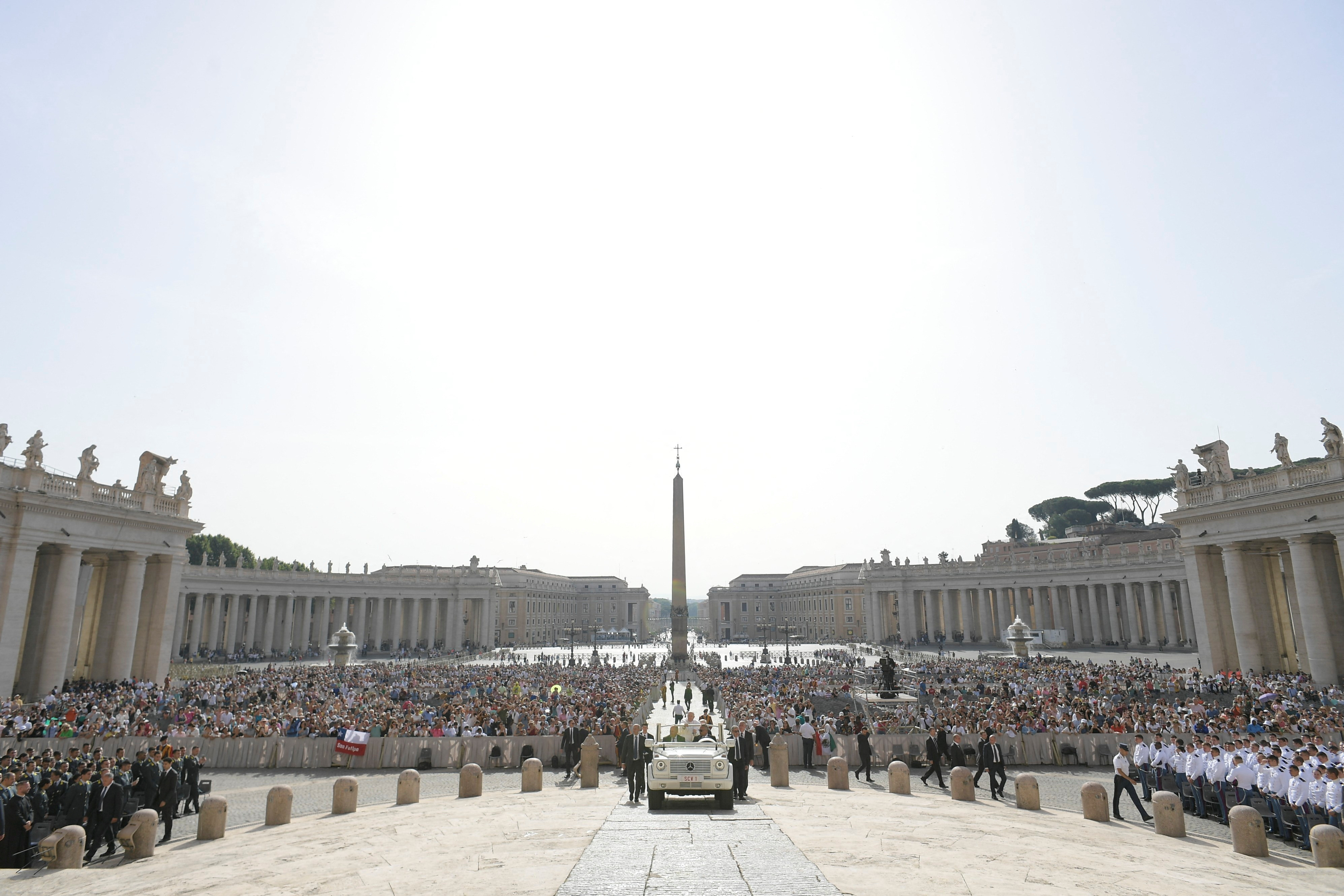
Pope Francis arrives for the weekly general audience at the Vatican June 22, 2022. Vatican Media/Handout via REUTERS/File Photo Acquire Licensing Rights
VATICAN CITY, Sept 21 (Reuters) – Two bishops from mainland China are due to attend a major Vatican meeting next month, officials said on Thursday, a positive sign after recent tensions between the Holy See and Beijing.
The two bishops were chosen by their brother bishops in China, meaning they likely had approval from the Communist government, which holds great sway over the Chinese Catholic Church.
The two are Anthony Yao Shun of Jining and Joseph Yang Yongqiang of Zhoucun, officials said at a press conference.
After they were proposed by the local Church, Pope Francis named them as two of his personal nominees to the month-long meeting of bishops, known as a synod.
They are expected to attend the entire synod. Two other Chinese bishops were allowed by the government to attend another synod for the first time in 2018 but did not stay for the entire meeting.
A bishop from Hong Kong will attend, as will one from Taiwan, which Beijing claims as its territory.
Beijing has been following a policy of “Sinicisation” of religion, trying to root out foreign influences and enforce obedience to the Communist Party.
A landmark 2018 agreement between the Vatican and China on the appointment of bishops has been tenuous at best, with the Vatican complaining that Beijing has violated it several times.
Two months ago the Vatican chided Beijing for not consulting over the transfer of two bishops from one diocese to another.
OVERTURES TO BEIJING
During his trip earlier this month to Mongolia, which has a long border with China, Francis made several overtures to Beijing, in apparent efforts to overcome recent tensions.
At one event, he called the Chinese a “noble” people and asked Catholics in China to be “good Christians and good citizens”.
At another, he said governments have nothing to fear from the Catholic Church because it has no political agenda.
The Oct. 4-29 synod has been in preparation for two years, during which Catholics around the world were asked about their vision for the future of the Church.
Proponents have welcomed the consultations as an opportunity to change the Church’s power dynamics and give a greater voice to lay Catholics, including women, and people on the margins of society.
Conservatives say the process has been a waste of time, may erode the hierarchical structure of the nearly 1.3 billion-member Church and in the long run could dilute traditional doctrine. A second final session will be held in 2024.
About 365 “members” with voting rights will attend, along with about 100 other participants such as observers and delegates from other Christian Churches. Women will be allowed to vote for the first time.
Reporting by Philip Pullella; Editing by Alex Richardson
spacer
Not only do we have the Vatican Meeting on October 4th, but we also have the US testing of the Emergency Alert System. From the looks of the following articles, it would be wise to test our readiness.
spacer
FEMA and FCC plan nationwide emergency alert test for Oct. 4

The Federal Emergency Management Agency (FEMA), in coordination with the Federal Communications Commission (FCC), will conduct a nationwide test of the Emergency Alert System (EAS) and Wireless Emergency Alerts (WEA) this Wednesday, Oct. 4.
The national test will consist of two portions, testing WEA and EAS capabilities. Both tests are scheduled to begin at approximately 11:20 a.m. Pacific Oct. 4.
The WEA portion of the test will be directed to all consumer cell phones. This will be the third nationwide test, but the second test to all cellular devices. The test message will display in either English or in Spanish, depending on the language settings of the wireless handset.
The EAS portion of the test will be sent to radios and televisions. This will be the seventh nationwide EAS test.
According to a FEMA news release, the purpose of the Oct. 4 test is to ensure that the systems continue to be effective means of warning the public about emergencies, particularly those on the national level. In case the Oct. 4 test is postponed due to widespread severe weather or other significant events, the back-up testing date is Oct. 11.
The WEA portion of the test will be initiated using FEMA’s Integrated Public Alert and Warning System (IPAWS), a centralized internet-based system administered by FEMA that enables authorities to send authenticated emergency messages to the public through multiple communications networks. The WEA test will be administered via a code sent to cell phones.
This year the EAS message will be disseminated as a Common Alerting Protocol (CAP) message via the Integrated Public Alert and Warning System-Open Platform for Emergency Networks (IPAWS-OPEN).
All wireless phones should receive the message only once. The following can be expected from the nationwide WEA test:
- Beginning at approximately 11:20 a.m. PT (1:20 p.m. ET), cell towers will broadcast the test for approximately 30 minutes. During this time, WEA-compatible wireless phones that are switched on, within range of an active cell tower, and whose wireless provider participates in WEA, should be capable of receiving the test message.
- For consumers, the message that appears on their phones will read: “THIS IS A TEST of the National Wireless Emergency Alert System. No action is needed.”
- Phones with the main menu set to Spanish will display: “ESTA ES UNA PRUEBA del Sistema Nacional de Alerta de Emergencia. No se necesita acción.”
WEA alerts are created and sent by authorized federal, state, local, tribal and territorial government agencies through IPAWS to participating wireless providers, which deliver the alerts to compatible handsets in geo-targeted areas. To help ensure that these alerts are accessible to the entire public, including people with disabilities, the alerts are accompanied by a unique tone and vibration.
Important information about the EAS test:
- The EAS portion of the test is scheduled to last approximately one minute and will be conducted with the participation of radio and television broadcasters, cable systems, satellite radio and television providers and wireline video providers.
- The test message will be similar to the regular monthly EAS test messages with which the public is familiar. It will state: “This is a nationwide test of the Emergency Alert System, issued by the Federal Emergency Management Agency, covering the United States from 14:20 to 14:50 hours ET. This is only a test. No action is required by the public.”
spacer
WHAT’S BEHIND THE NATIONWIDE CIVIL DEFENSE DRIL TO BE CONDUCTED ON OCTOBER 4th
YouTube
5 days ago — … THE NATIONWIDE CIVIL DEFENSE DRILL TO BE CONDUCTED ON OCTOBER 4TH? … Mitch McConnell appears to freeze again, more | America Decides.
spacer
spacer
INTEL: Government Shut-Down is a “Go”
|
20 hours ago — Congress averted a shutdown on Saturday by mere hours, passing a measure that extends government funding for the next 45 days.
|
Within the US House of Representatives, there is clearly a full impasse over the Budget and it does not appear they will overcome this impasse.
For my part, I grabbed some money out of the bank, just in case. I fueled-up the vehicles, did some minor food shopping and checked with my wife and son as to anything they thought we might need if everything suddenly went wild-weasel.
As far as we can tell, we’re good.
The house in North Bergen, NJ is ready as we can make it. The house in Pennsylvania is as ready as we can make it. Now, we go on about our affairs as we usually do because, in reality, none of us needs the federal government AT ALL.
In our everyday lives, they amount to absolutely nothing to us. They perform no services we need or want.
All of our local and state services are still fully available and we will be just fine without the feds.
Now, folks on Social Security . . . may have a big problem. I __believe__ those checks will NOT be going out. So this may end up being a time for families to come together to make sure mom, dad, the grandparents, and such, are all OK and have food and medicines.
Russia to Hold First Nationwide “Nuclear Attack Exercise” – all 11 Time Zones – Oct 3
This first nationwide nuclear attack exercise across 11 time zones is openly stated by Russia to be “in preparation for potential nuclear war.”
It is scheduled to take place on October 3 and will see Vladimir Putin’s regime present the West as a nuclear aggressor.
The one-day nuclear attack exercise, which has only ever been done region by region, will include preparation for the destruction of up to 70% of Russian housing stock and life support facilities.
It will assume, for the exercise, that martial law has been introduced in Russia and that is has gone through full mobilization.
It seems no small coincidence this is announced to take place just one day BEFORE the US Emergency Alert System (EAS) test, scheduled for October 4.
Thanks to a large publicity campaign, almost all Americans are now aware that this EAS Test will hit all cell phones, TV’s, and Radios on October 4.
WHAT IF . . .
What if Russia holds its “exercise” and puts a whole slew of its people in shelters and then, waits for the US EAS Test to actually launch a first strike?
Americans, hearing the EAS system tones on October 4, might just think to themselves, “Oh, that’s the national test, I don’t have to do anything” but in reality, Russian missiles may actually be inbound!
Such a scenario would cause massive additional American casualties in a populace that was primed to ignore the EAS test that day.
spacer
Russia has been preparing for Nuclear Threats for a long time. They have been preparing and restoring and building underground shelters with the goal of providing safe havens for all their people. They have been encouraging everyone to prepare for emergencies of any kind. They have been training young and old on how to deal with emergencies, especially a nuclear attack.
spacer
Speaking after a meeting of Russia’s Security Council chaired by President Vladimir Putin, Dmitry Rogozin, the deputy prime minister in charge the defense industry, said the United States was upsetting the nuclear balance by developing new weapons systems.
Russia had no choice but to react to the aggressive capabilities of the United States, he said.
“Measures for countering the aggressor could include those that concern Russia’s strategic nuclear capability, that is reciprocal measures so that, God Forbid, no one gets a crazy idea in their head,” Rogozin said.
There could be other measures “so that the population, if nonetheless they were subject to that kind of aggression, could avoid colossal losses. … Civil defense should be recreated,” he said.
During the Cold War, Soviet authorities built a system of bomb shelters in case of a nuclear attack, and school children were trained how to put on protective masks. Posters telling people how to respond hung in schools and workplaces.
Russians Rush to Rebuild Bomb Shelters
In Moscow and beyond, taking stock and condition of their bomb shelters
While Americans deal with their own political identity crisis, Russians, not to be outdone, are preparing for the World War III.And while the Kremlin’s official discourse is just somber and dark, the state-controlled news and yellow press are calling for full-on preparedness for the nuclear attack from the US.
Earlier this month the Ministry of the Emergency Situations of the Russian Federation (EMERCOM) declared a four-day, countrywide emergency preparedness drill that included taking stock of all existing bomb shelters and evacuation processes.Over 40 million people, 200, 000 emergency response specialists and 50,000 specialized vehicles across the Federationparticipated in the drill. Just last month, Moscow conducted its own preparedness drill, inspecting all of the city’s bomb shelters and declared the city—population of over 12 million—to be 100% bomb shelter ready, according to RIA News.
spacer

Russia announced that compulsory military training, the same as during the Soviet era, will be introduced in Russia’s high school curriculums starting in 2023, Russian Education Minister Sergey Kravtsov said on Wednesday, according to TASS.
“It will be introduced in schools starting from the next academic year. Now it is being drafted and after January 1, it will begin to be tested,” Kravtsov said. According to TASS, high school students will be put through around 35 hours of training, although an official timeframe is yet to be approved by the Russian Duma.
Russian schools have already added the invasion of Ukraine to the 10th and 11th graders’ history curriculum starting this academic year.
Younger students are also required to attend weekly patriotic classes called “Important Conversations.” Parents, teachers and lawyers expressed concern over what they criticize as state efforts to rally support for the war among children, according to The Moscow Times.
Russia is also planning to overhaul humanities education with an ideological course on the “fundamentals and principles of Russian statehood” in universities by March 2023, according to a report published by Kommersant.
From Monday through Thursday this week, Taiwan will be running a defense exercise simulating a Chinese air attack, preparing civilians for what to do if China invades. And from Monday through Friday, Taiwan will be running a live-fire exercise to test Taiwan’s combat readiness to respond to a Chinese invasion, according to the Ministry of National Defense.
Civilians will be required to shelter in place when the defense drill is underway, according to CNA. In some locales, drivers out on the streets will be asked to stop their cars and evacuate them, as will passengers on public transportation, bringing cities to a near standstill, according to Taipei’s Department of Transportation.
The entire drill is aimed at reducing casualties in the case of an attack from China, which has been growing increasingly aggressive towards Taiwan. Over the last few weeks, China has sent a record number of warships to waters surrounding Taiwan. According to American officials, the current U.S. government assessment is that Chinese President Xi Jinping is working to be prepared for conflict in either 2025 or 2027.
“Familiarity with the location of air raid shelters and procedures of evacuation will help improve the response time and survivability of individuals in the face of real threats,” Taipei City government said in a statement.
To get civilians prepared for a Chinese invasion, branch leaders of civil defense corps subdivisions have been working with police to brush up on air raid exercises, evacuation guidelines and preparing emergency supplies and medical gear, according to Taipei City government.
Although China has been conducting practice runs of what it would be like to blockade Taiwan, with warships, jets, and an aircraft carrier, Taiwan is likely preparing for China to execute a different, more sudden, kind of attack, said Freddy Lim, a Taiwanese lawmaker.
“We think that China’s strategy must be how to quickly seize Taiwan and avoid foreign intervention,” Lim told The Daily Beast in an interview this week. “They want to do it quick.”
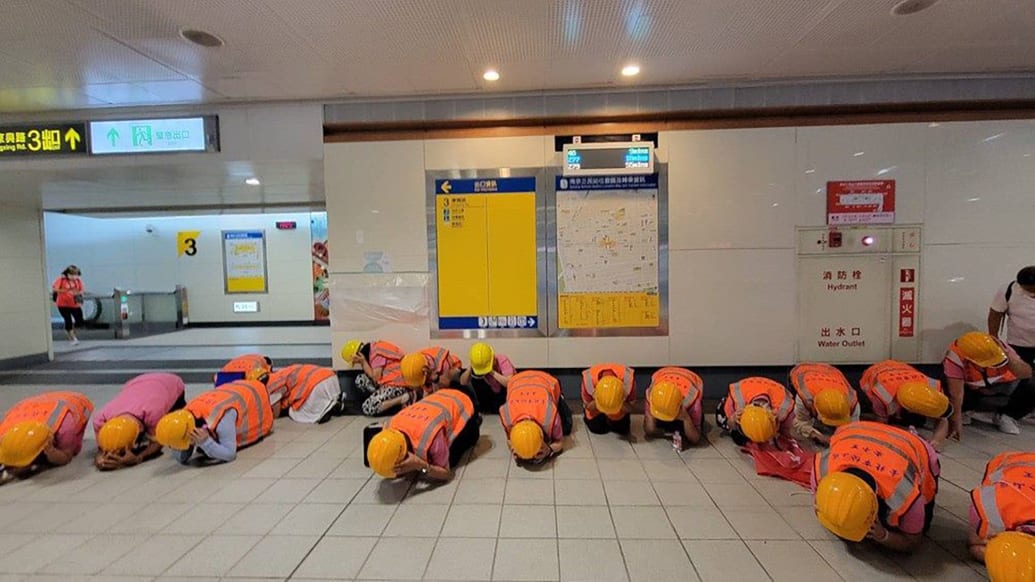
The key for Taiwan will be an abrupt thrust, according to Tony Hu, the first Pentagon senior country director for Taiwan.
“If China wants to take Taiwan, it must do it quickly and end it quickly and get Taiwan to surrender before foreign forces can arrive to help,” Hu said. “A blockade is not going to work… A blockade, which takes months to have its effects—to starve the people into surrender—it’s just not going to get them to where they want… They not only give foreign forces the opportunity to build up and then there’s zero chance of China winning a conflict over Taiwan.”
Part of the coming exercises is aimed at getting the people of Taiwan prepared for a Chinese invasion. But the other portion of the exercises is aimed at sending a message to China that invading Taiwan will be far too costly, according to Hu.
“It’s very important for the people on Taiwan to be resilient to be able to recover and survive the kind of attack that is expected from China. So it’s time for exercises, get people prepared to be ready just in case. The fact that the people is ready and prepared in and of itself is a deterrent too,” Hu told The Daily Beast.

“Hopefully the Communist Party, the leadership in the Communist Party, recognize the fact that Taiwan is not easy for you to get—it’s going to be a difficult battle for them to try to take Taiwan,” Hu added.
Taiwan is working to obtain National Advanced Surface-to-Air Missile Systems (NASAMS) from the United States to prepare to defend Taiwan, Taiwan’s defense minister said this week.
Conversations in the U.S. Congress about sending Taiwan NASAMS are ongoing, The Daily Beast has learned.
“Our greatest priority in Asia must be ensuring Taiwan has the capabilities and training to deter Chinese aggression,” Sen. Jim Risch (R-ID), the ranking member the Senate Foreign Relations Committee, told The Daily Beast when asked about the NASAMS transfer conversations.
Taiwan still needs better intelligence-sharing cooperation with the United States, as well as long-range weapons, Lim, the Taiwanese legislator stressed. It also needs to continue to work on being prepared to withstand a first, second, third, and fourth wave of attacks from China, he said.
At this point, it’s not clear that China believes that it would lose if it attacked Taiwan, according to Lim.
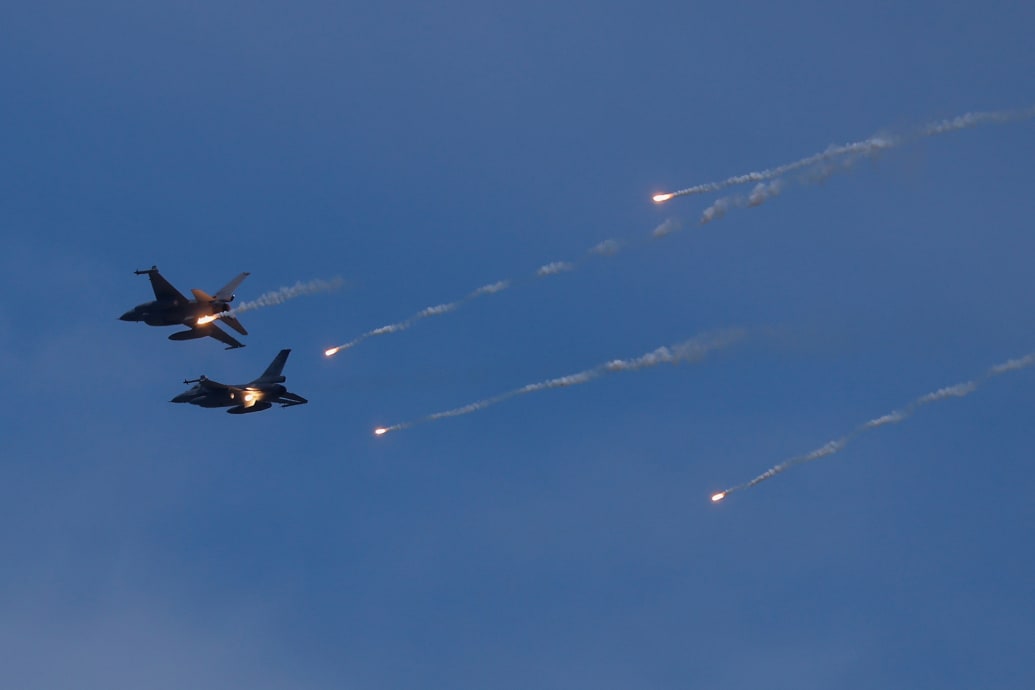
“I don’t know” if China thinks it would lose, he admitted to The Daily Beast. “I think logically they should understand, especially when they see the Russian invasion in Ukraine and the response from the international communities and how resilient the Ukrainians show. Then they logically should know that it’s even more difficult to invade Taiwan from China and… they will face stronger resilience from Taiwanese people.”
Bolstering Taiwan’s defenses is likely not enough to prepare for a Chinese invasion, though. Several other elements of a strong defense from Taiwan would inevitably lean on the United States and other allies, and President Joe Biden has said U.S. forces would defend Taiwan if China attacks Taiwan.
If China attacks Taiwan and the United States moves to respond, that will almost certainly pull on U.S. troops stationed in Japan. But it’s not clear that Japan is as willing to jump in the fray, said Kevin Maher, the former head of the Office of Japan Affairs at the U.S. Department of State.
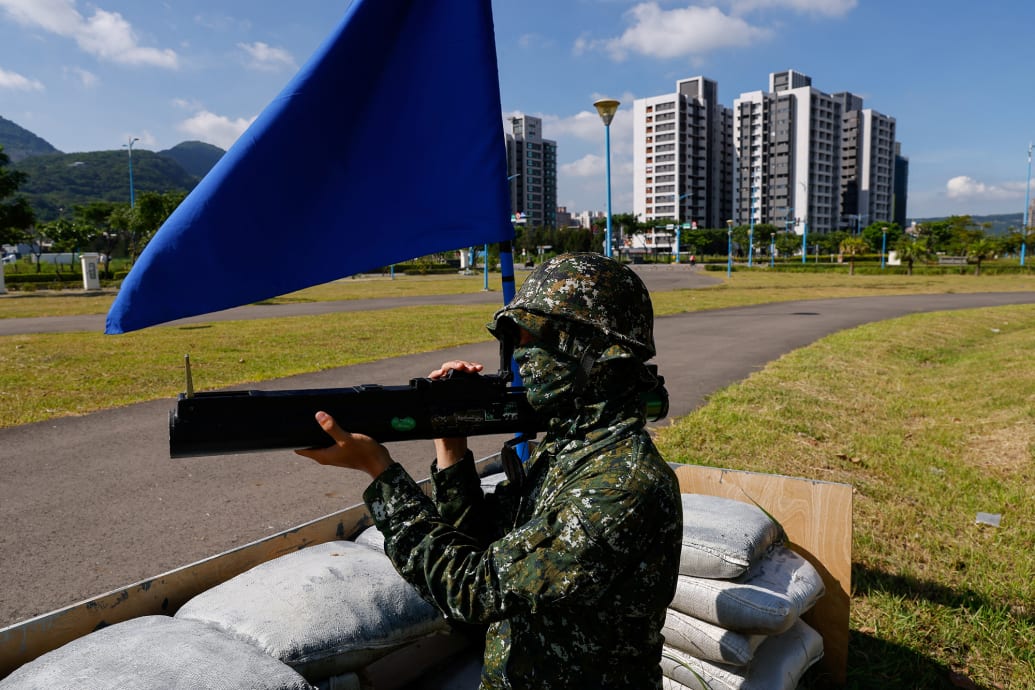
There could be a “two-pronged approach by China. One would be the direct action against Taiwan at the same time and attempt to neutralize the ability of the U.S. to flow armed forces or resupply out,” Maher told The Daily Beast. “At what point does Japan move beyond just cooperating with the U.S.… but also cooperating with the U.S. for defending Taiwan? That’s an evolving situation in Japan in the government thinking on that.”
Japan has renounced the use of force to settle international disputes since World War II. But some of Japan’s approach is changing: In 2015, then-Prime Minister Shinzo Abe approved a law that would enable Japan to respond militarily if an ally is attacked, raising resistance from some concerned about Japan falling into the crosshairs of other countries’ conflicts.
Preparing for the Worst
In a simulation hosted by the Center for Strategic and International Studies, the United States was able to counter a Chinese invasion of Taiwan—with support of Japan.
But in another wargame—which was organized by the Japan Forum for Strategic Studies in Tokyo—communication breakdowns between Japan, Taiwan, and the United States were glaring, according to Maher, who participated as a U.S. representative.
Fixing the lack of communications channels and combined operational planning in the coming years between Japan, Taiwan, and the United States, will be crucial to taking on China.
“There needs to be some type of mechanism for us to be talking to the Taiwanese. It’s obviously very politically sensitive because the Chinese would say: Well, you’re interfering in internal affairs,” he said.
Some of the latest aggressive moves from China, like the record number of warships, might be more about sending a message domestically, than about Beijing trying to take any dangerous steps toward Taiwan, according to Lim.
“In one hand, China tried to fix the relationship with the U.S. But in the other hand, China doesn’t want to show that they are softer on the Taiwanese issue… they try to calm their own people,” he told The Daily Beast. “How to let their own people feel like when they are trying to fix the relationship with the international community, it doesn’t mean that they will been softer on Taiwan.”
Even so, Xi’s rhetoric in recent days has been alarming.
During a visit to the the People’s Liberation Army’s Eastern Theater, which faces Taiwan, in recent days, Xi called for “enhancing the planning of war and combat… and stepping up training under real combat conditions to raise the forces’ capabilities to fight and win.”
And while Xi’s orders on “planning war” might be more about sending a message to his own people, Taiwan can’t run the risk that Xi might decide to act on his threats.
“There is still a risk that he might make the wrong move. So that’s why I think that we should always prepare ourselves… how we strengthen our national defense, and how we strengthen our relationship with our allies,” Lim said. “That’s still the most important thing.”
spacer
Finland joined the NATO military alliance in April in a historic security policy U-turn but it had kept preparing for the possibility of a conflict with Russia for decades, after fighting back an invasion attempt by the Soviet Union during WW2.
The wary Nordic country made the construction of emergency shelters mandatory under apartment blocks and office buildings as early as in the 1950s, which explains their current high number.
The government’s census concluded that the Nordic nation of 5.5 million people has some 50,500 bomb shelters that can fit 4.8 million inhabitants in them in case of an emergency or an attack, the ministry said.
The shelters are equipped with ventilators, impervious doors, stackable beds and even dry closets, as required by the latest law that dates back to 2011.
During peacetime, some of the underground shelters house swimming pools, sports centres or – as in the very north of the country – a Santa Claus theme park.
The shelters are maintained by each building’s owners and the government called for their proper upkeeping.
“Over the decades, Finland has built a civil protection infrastructure worth billions of euros, which is worth taking care of,” Pasi said.
spacer
Switzerland sets ‘gold standard’ for designing bunkers
pacer
In neutral Sweden, civil defense and citizens gear up for possibility of war
Civil defense has returned to the top of the Swedish political agenda since the annexation of Crimea by Russia in 2014. The country is making preparations to ensure that inhabitants can resist in the event of conflict.
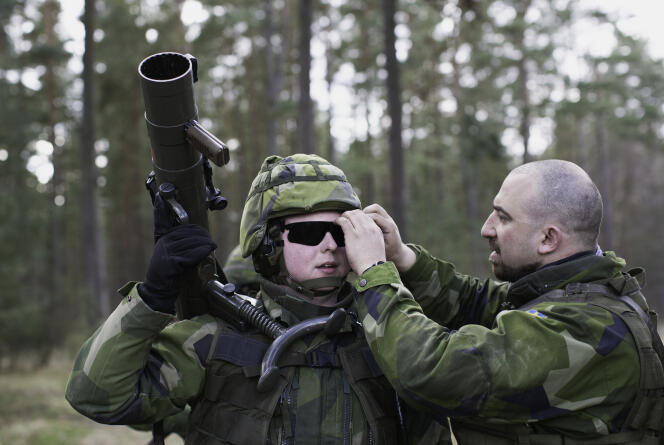
Military training of civilians in Rinkaby, Sweden, April 2, 2022.
There were 404,218 of them, on December 31, 2022 – 16% more than in June. Among them were career soldiers and reservists, civil servants, bus drivers and childcare workers. They have all received their “war assignment.” If Sweden is attacked, they know what is expected of them. Most of them, like the public television and radio station employees who were notified in October, will have to continue working in their jobs, which are considered critical for the functioning of society. Others are selected for their specific skills.
Everyone has been asked to exercise discretion, because the country’s civil defense is at stake. Now, it is in full resurrection after a long interlude lasting almost three decades, since a time when “we wanted to believe in eternal peace,” said Marinette Nyh Radebo, in charge of communication at the Swedish armed forces recruitment agency. The agency maintains a record of all assignments, making sure there are no duplicates. “When the police sent us their lists, we discovered that several thousand peacekeepers were reservists,” explained Nyh Radebo.
The mobilization has only just begun. By way of comparison, in 1992, the country, which then had 8.5 million inhabitants (10 million today), was able to requisition 2.2 million people for its civil defense, in addition to the million who could be called up to join the army. For everyone else aged between 16 and 70 and non-assigned, fleeing was not an option either: They were to continue their usual activities but could be called upon by the national employment agency.
‘Very serious security situation’
The 121,500 young Swedes who celebrated their 16th birthday in 2022 were reminded of this defense duty, which had been forgotten by the end of the 20th century. The Swedish Civil Contingencies Agency (MSB) sent them a letter, informing them that they were now part of the kingdom’s “total defense” and had an “obligation to help in case of a threat of war, or war.
spacer
Demand for doomsday bunkers in the UK soars after Putin’s nuclear threats against the West: London-based firm reports 100% surge in interest for its ‘£1million’ survival shelters after Ukraine invasion
- Panicking Britons are fuelling a spike in demand for nuclear-proof bunkers after Vladimir Putin’s threats
- Subterranean Spaces said enquiries surged at the weekend ‘100 per cent’ from February 2021
- Bespoke shelters cost at least £100,000, and multi-purpose bunkers can cost as much as £900,000
- Texas-based company Rising S Bunkers experienced a ‘1,000 per cent’ surge in demand across West
UK firm Subterranean Spaces said enquiries surged at the weekend ‘100 per cent’ from February 2021, when the prospect of full-scale conflict in Europe still seemed remote.
Founder Charles Hardman said that on Thursday and Friday – the first two days of Russia’s lawless invasion of Ukraine – the company got 12 enquiries from families of three, families of four and one family of eight in London, Wales and even the French Alps.
Amazingly, he added: ‘People have even been asking if we supply kit formations – basically DIY shelters. As if people are going to build their own nuclear bunkers!’.
Bespoke shelters built by Hardman’s Subterranean Spaces, founded in 2018, cost at least £100,000, and multi-purpose bunkers containing videogame simulators, kitchens, and air filtration systems for a family of six can cost as much as £900,000.
Hardman advised it takes around four months to plan and build, adding that the shelters should be set up in a garden and not under a house. ‘What’s the point of surviving a nuclear blast if the house collapses on top of the bunker and you can’t get out?’, he mused.
And it appears that red tape doesn’t disappear, even in the event of a Third World War. ‘Of course, we also have to handle planning and need to get permission to build bunkers. Red tape won’t just go away’, Hardman went on.
The bunker boss added that Russian aggression since the annexation of Crimea in 2014, combined with the possibility of biological, chemical and cyber attacks by terrorist organisations or hostile state actors, had made getting a bunker ‘quite prudent’.
Love Property also reported that page views on the site’s bunker content has jumped by 259 per cent since February 23, ‘which is almost definitely due to the war in Ukraine’, a representative for the website told MailOnline.
Fearful Britons have called a range of companies, including Texas-based company Rising S Bunkers, about getting a nuclear-proof bunker set up at home.
Its owner Gary Lynch said the firm has experienced a ‘1,000 per cent’ surge in demand from people in the UK, Canada, Denmark, Italy, Japan and the US. He told MailOnline more than 100 people from Britain have contacted him in recent days.
Maybe Doomsday preppers aren’t so crazy after all.
As nuclear threats loom from countries like Iran and North Korea, the US is knocking the dust off decades-old bunkers intended to protect government officials — and even start a new civilization — in the case of just such a nightmare event.
Journalist Garrett Graff takes readers through the 60-year history of the government’s secret Doomsday plans to survive nuclear war in his painstakingly researched book “Raven Rock: The Story of the U.S. Government’s Secret Plan to Save Itself — While the Rest of Us Die” (Simon & Schuster), out now.
He focuses on the Cold War-era government bunkers across the country that were built to house the President and various Washington elites — members of a so-called “shadow government” in the worst nuclear Armageddon scenario.
Since September 11, 2001, Congress has intensified their interest in and funding of top secret “Continuity of Government” (COG) in ways not seen since the Cold War. With hundreds of newly declassified documents, the book, currently in development with NBC as a TV show, includes never-before-heard intel on the country’s top secret bunkers — mythical places like Raven Rock and Mount Weather.
Here’s the low down on some of these bunkers down below…
Raven Rock
Lillington, NC • For military
Built near Camp David to house the military, as a backup for the Pentagon — and perhaps even the President — during an emergency, Raven Rock has retained an air of secrecy ever since construction started in 1948.
Not that it could remain completely clandestine, given the 300-person team (including miners poached from the Lincoln Tunnel dig) who carved a 3,100-foot tunnel out of granite in Raven Rock Mountain near Blue Ridge Summit, Pennsylvania.
“There were very few engineers with the expertise to hollow out a mountain and build, in essence, a free-standing city inside of it. The US government turned to the construction firm Parsons Brinckerhoff, which had developed unique tunneling expertise working on the New York City subway,” Graff told The Post.
Locals caught on and word spread to the media, who dubbed the project “Harry’s Hole,” after President Truman who greenlit the project.
Opened in 1953 and designed “to be the centerpiece of a large military emergency hub,” Raven Rock provided 100,000 feet of office space (not counting, Graff writes, “the corridors, bathrooms, dining facility, infirmary or communications and utilities areas”) that could hold about 1,400 people comfortably. Two sets of 34-ton blast doors and curved 1,000-foot-long tunnels reduce the impact of a bomb blast. The compound has undergone several rounds of upgrades — new buildings were added as well as updated technology and air filtration systems.
By the fall of the Berlin Wall in 1989, many government officials recommended closing Raven Rock for good. “You’d feel like you’re walking into a dinosaur,” one said. In 1991, President George H.W. Bush ceased 24 hour operations, effectively forcing the site into standby mode.
Then September 11 happened. By the second anniversary of the attacks, the government had injected $652 million in upgrades. The annual budget ballooned and construction started on new buildings.
The underground city “added 27 new fuel tanks in 2012, each of which could hold 20,000 gallons,” Graff writes. Raven Rock is believed to have 900,000 square feet of office space now. Today it holds between 3,000 and 5,000 government employees — no familiies.
“Families would have been prohibited from Raven Rock — as they would have been from effectively all of the Doomsday bunkers,” writes Graff, “although in recent years as the veil of complete secrecy has lifted, family members of Raven Rock personnel are allowed to visit it for specific ceremonies. So at the very least, family members today can picture where their relatives will spend Doomsday, even as they’re barred outside.”

Peters Mountain
Appalachian Mountains, Virginia • For intelligence agencies
“Peters Mountain, Virginia, is a long-standing facility, run undercover as an AT&T communications station — there’s even an AT&T logo painted on its helipad — but its real purpose is as one of a half-dozen secret facilities known as AT&T “Project Offices” that are actually key hubs for government continuity planning. It’s a department-store-sized bunker, capable of housing several hundred people, and has undergone a $67 million renovation in recent years that would help it serve as one of the relocation sites for intelligence agencies in the event of an attack on Washington,” says Graff.
Mount Weather
Bluemont, Va. • For civilian government
The President could end up at any of the Doomsday facilities, but in general terms Mount Weather is designed to hold the civilian leadership of the US government, including the President, the Supreme Court, Cabinet officials, and some senior congressional leaders.
A year after Raven Rock opened its doors, work began on Mount Weather, once an observatory for the Weather Bureau (hence its name) and, for a brief time, Calvin Coolidge’s summer White House home. Tunnels excavated through thousands of tons of greenstone lead to a true underground city that can house thousands of staff. Under JFK’s tenure, the bunker expanded to sewage treatment plans, reservoirs for drinking water and even its own fire and police departments — all underground.
Mount Weather boasted “extensive computer systems” — including the forerunner to now ubiquitous chat programs like AOL Instant Messenger and Skype, to respond to possible communication crises. Mount Weather also housed a “Survivor’s List” of 6,500 names and addresses of people — government employees and private citizens — viewed as “vital” and key to maintaining “essential and non-interrupted services” in an emergency.
Unlike Raven Rock, Mount Weather has an extensive above ground facility that FEMA uses for routine staff training and seminars. “There’s even a bar, the Balloon Shed Lounge, the name a nod back to the site’s origins as a weather balloon launch station,” Graff tells The Post. In 2016, it embarked on “a significant infrastructure upgrade” so the facility is “capable of supporting 21st century technology and current Federal departments and agencies’ requirements,” Graff adds.
Mount Weather has been updated after 9/11 because “there’s now a greater focus in government planning on ‘devolution,’ that is, ensuring that backup facilities are always staffed and ready to assume control if the worst happens — rogue states or terror groups today offer more of a threat that a surprise attack on Washington could destroy the capital without warning,” Graff says.
NORAD

Colorado Springs, Colo. • For air defense
Unlike Raven Rock and Mount Weather, the military’s North American Aerospace Defense Command (NORAD) was never kept secret from the public. “NORAD is specific to North American defense — it includes the command post responsible for defending both Canada and the US from air attacks, whether that’s terrorists, Russian bombers, or North Korean missiles,” Graff says.
The difficult, three-year project — started in the 1950s as a reaction to creeping Cold War paranoia — was built when we were first understanding the damage that could be inflicted by electromagnetic pulses (EMP) that would follow a high-altitude nuclear explosion. It became one of the first facilities protected against EMP. Today most new facilities are protected against it (including Doomsday planes built for the president), but “it’s an intensive and expensive process, so it’s useful to rely on older sites” like NORAD.
Five chambers inside Cheyenne mountain hold reservoirs for water and fuel. There is even an underground lake, which requires rowboats to patrol. In the beginning, nearly $40 million went into equipping it with the best computers and electronics, including three room-sized Philco 212 computers and 15 console displays (cutting edge technology at the time). During an emergency, NORAD could house 1,000 people for a month.
The Pentagon nearly closed the book on the facility, which costs about $250 million a year to operate, but reversed course after 9/11 — installing about $700 million in communications and computer upgrades five years after the attacks. One $15 million project in 2004 nearly doubled the main command center’s 540 square feet to accommodate more staff.
After a brief return to standby mode in 2006, the Obama administration brought NORAD back to life. It began running full-scale continuity drills and even sealed the blast door entrance for 24 hours — the first time a test of that magnitude had happened there. In 2015, the Pentagon announced that it was restaffing the bunker as “the rising threat of electromagnetic pulse attacks against the United States, perhaps even by a new nuclear-armed nation like Iran, meant that the NORAD bunker . . . was a perfect bastion from which to defend the nation,” Graff writes.
White House Front Lawn

Washington, D.C. • For the President and key officials
The most mysterious of all bunkers is this one, located right in the heart of our nation’s capital.
“There’s definitely a bunker under the White House, known as the Presidential Emergency Operations Center (PEOC), which is where Dick Cheney was rushed on September 11th and where he spent the day helping to lead the government’s response. It’s a small facility, not designed for long-term use, just to hold a few dozen people for a few hours, which traces its roots all the way back to FDR, when the first bunker was built to protect against a surprise Nazi attack. Later, Truman expanded it and the facility has been updated again in recent years since 9/11 when the attacks showed how limited the communications systems were. For instance, Vice President Cheney couldn’t listen to both CNN and to the government’s videoconference at the same time on 9/11,” says Graff.
Far less is known about the bunker update done during Obama’s first term. The massive expansion was built beneath the North Lawn of the White House and was intensely guarded from the prying eyes of the press. The $376 million project seemed “far too extensive to be merely an air-conditioning upgrade,” writes Graff.
s[acer
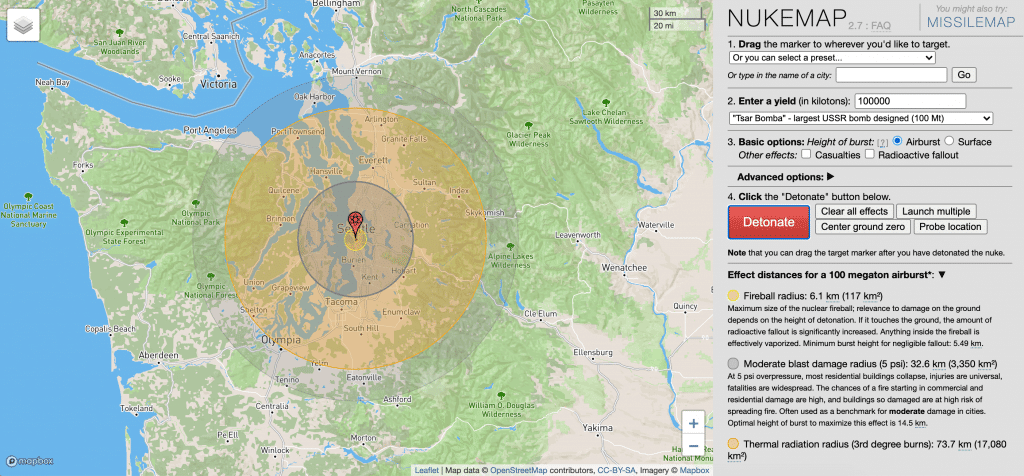
FIND YOUR NEAREST FALLOUT SHELTER
While nuclear explosives are lethal, you’ll experience their effects the most if you’re stuck in a limited area.
According to safety experts, you can survive a nuclear attack by taking the right precautions. Of course, the chances of surviving are usually higher if there has been a prior warning from your government’s ballistic missile warning system.
To increase your chances, locate an underground shelter – like a fallout bunker.
If none are in sight, you can go find a secure building, like an elementary school, and move to the center inside as recommended by the government.
Make sure you’re away from tall, collapsing buildings, doors, windows, and outer walls for ultimate protection.
The only problem with this is its really not a safe option – even in the basement.
It’s better than nothing. But, really you want something underground and built for that purpose.
The best way to survive a bombing is by hiding inside a nuclear shelter. To do that, you must know the basic fallout shelter signs.
Overall, there are only three survival options when it comes to optimal protection: Underground Mines, Caves, and Government Bunkers.
Option 1: Underground Mines
With underground mines you have to be careful to make sure the air has sufficient oxygen and isn’t toxic.
People have died from asphyxiation by going into an underground mine that lacks oxygen. Also, if the mine has been unused for a while, it could be in danger of collapsing from the explosion since it hasn’t been reenforced for some time.
These aren’t the only dangers with abandoned mines, though. Here’s more.
If you still want to know where all the mines are located near you, here’s an interactive map that shows where Mineral Resource mines are all located.
Note that not every mine is underground since the map also shows surface operations.
You’ll want to make a list of the mines and go visit them to see which ones could be an option for you.

Mineral resource mines aren’t the only option, though.
Here’s another interactive map showing inactive metal mines. You’ll also have to determine which ones are surface or underground.
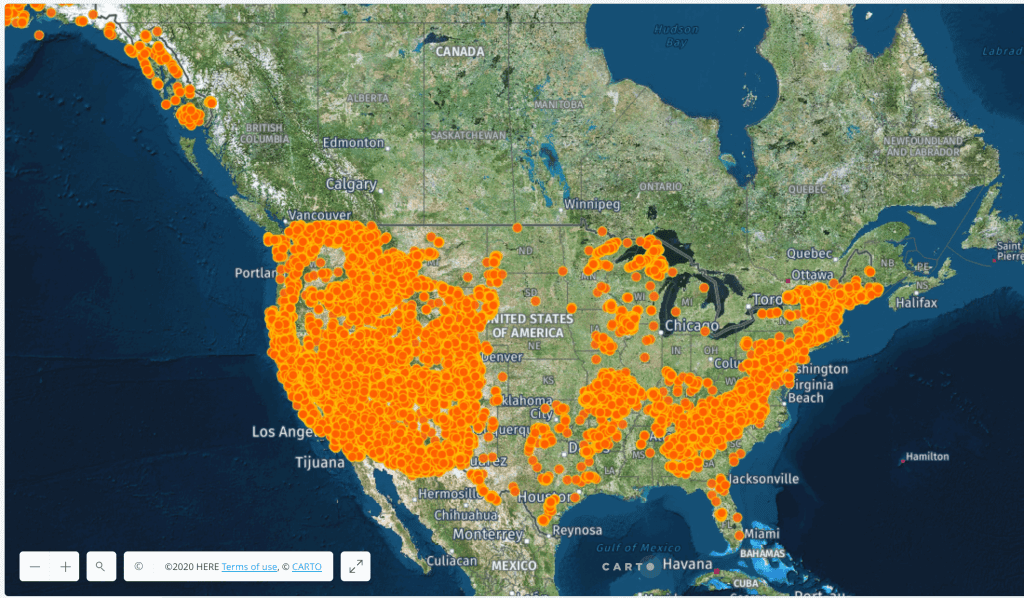
I don’t recommend going inside of them.
Let me recommend another option – one that will be better.
Option 2: Caves
The popular ones are probably going to be taken quickly in an emergency. You need the ones that aren’t well known.
A good place to start is by searching through this list of caves by state. While you’re searching, take note of how many visitors go to visit the cave each year.
Option 3: Government Bunkers
There are several problems with Federal bunkers. Not only will it likely be difficult to gain access, they are also likely to be quite far away from your location. You aren’t going to have a lot of time to find safety.
Quick access is key.
You need something that is right near you – not 15 or 20 minutes away.
That’s why you need to build your own underground bunker or shelter just in case.
One of the largest U.S.-Army led military exercises in decades has kicked off and will run until June, with 28,000 total troops from 27 nations taking part. Defender Europe 2021 will include “nearly simultaneous operations across more than 30 training areas” in a dozen countries.
The exercise is the deployment of a division-size force from the United States to Europe, pulling equipment from Army prepositioned stocks, then moving personnel and equipment across the theater to multiple training areas.
Last year’s exercise was planned to be the largest NATO exercise in Europe in 25 years but had to be scaled back due to the outbreak of the COVID-19 pandemic. Even so, U.S. and allied forces managed to conduct some of the planned drills and joint exercises.
This year’s wider-ranging exercise will include COVID restrictions and monitoring but will span the Balkans and the Black Sea region and use key ground and maritime routes that bridge Europe, Asia and Africa, according to a U.S. Army Europe and Africa statement.
:quality(70)/cloudfront-us-east-1.images.arcpublishing.com/archetype/4DZVAJO275COHLRZDIH4AM6L4M.jpg)
“While we are closely monitoring the COVID situation, we’ve proven we have the capability to train safely despite the pandemic. No matter what, our nations count on our forces being ready to defend the peace,” said Gen. Christopher Cavoli, U.S. Army Europe and Africa commanding general.
The multi-faceted, months-long exercise provides the United States and allies a showcase event for crisis response, Cavoli said.
The U.S. Air Force and Navy will see an increased role in this previously largely Army affair. Planners are incorporating “new or high-end capabilities,” which include air and missile defense assets, capabilities from the Army’s Security Force Assistance Brigades and V Corps, which was recently reactivated.
Of the 28,000 total participants, an estimated 2,100 are coming from the Army National Guard and another 800 from the Army Reserve.
Equipment and personnel begin flowing this month from the United States to Europe. Next month units will draw from prepositioned stocks of gear in the Netherlands, Italy and Germany.
Defender Europe 21 acts as an overarching, umbrella-like operation that includes several exercises that run from early May to June, including:
- Swift Response — in early May, includes airborne operations in Estonia, Bulgaria and Romania with more than 7,000 troops from 11 countries.
- Immediate Response — mid-May to early June, has more than 5,000 troops from eight countries in 31 training areas in a dozen countries running live-fire training and a joint over-the-shore logistics operation.
- Command Post Exercise — in June, will see 2,000 troops running a headquarters commanding multinational land forces in joint and combined training environments, all while running real-world operations in 14 countries on two continents, sharing mission command, mutual sustainment and mission partner environment.
There are two large-scale training events also running under Defender-Europe 21 this year:
- African Lion — mid-May to mid-June, is the U.S. Africa Command annual training event using 5,000 troops from 24 nations primarily in Morocco, running large-scale live fire, medical readiness, air, maritime and forward command post training exercises.
- Steadfast Defender — mid-May to early June, are new NATO exercises working transatlantic reinforcement, demonstrating NATO’s rapid full-scale threat response capabilities.

Defender 23 will include multinational troops from more than 20 Allied and partner nations.
Singh said equipment to support the exercise began arriving this week in Spain. About 7,000 pieces of equipment were shipped to the European theater from the U.S., she said. Additionally, about 13,000 pieces of equipment, drawn from pre-positioned stock, will be used during Defender 23.
Jun 12, 2023 —
Allied air forces began the largest deployment exercise in NATO’s history on Monday (12 June 2023). Twenty-five nations are taking part in the two-week long “Air Defender” exercise, with around 10,000 personnel and 250 aircraft.
“Air Defender sends a clear message that NATO is ready to defend every inch of Allied territory”, said NATO spokesperson Oana Lungescu, adding, “Air Defender is necessary because we live in a more dangerous world. As we face the biggest security crisis in a generation, we stand united to keep our countries and our people safe.” The exercise, she added, “is a strong display of Germany’s commitment, and capabilities and we thank Germany for hosting this record exercise. With 250 aircraft, including around 100 from the United States, Air Defender also demonstrates the strong bond between Europe and North America, working together in NATO.”
Exercise “Air Defender” has been planned for several years. Hosted and led by Germany, it will help ensure NATO air forces are trained and ready to respond together. Most of the aircraft will be stationed on several German air bases. Training missions will primarily take place over the North Sea, the Baltic Sea and Southern Germany. The drills are aimed at boosting interoperability and preparedness to protect against aircraft, drones and missiles attacks on cities and critical infrastructure. Other training events will include supporting ground troops and evacuation missions. Air Defender will run until 23 June.


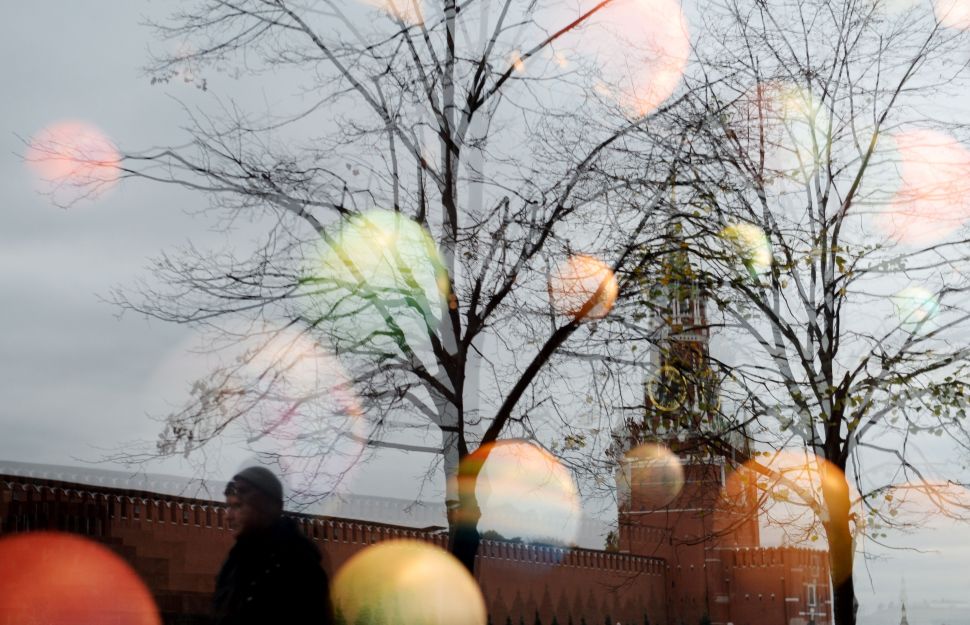

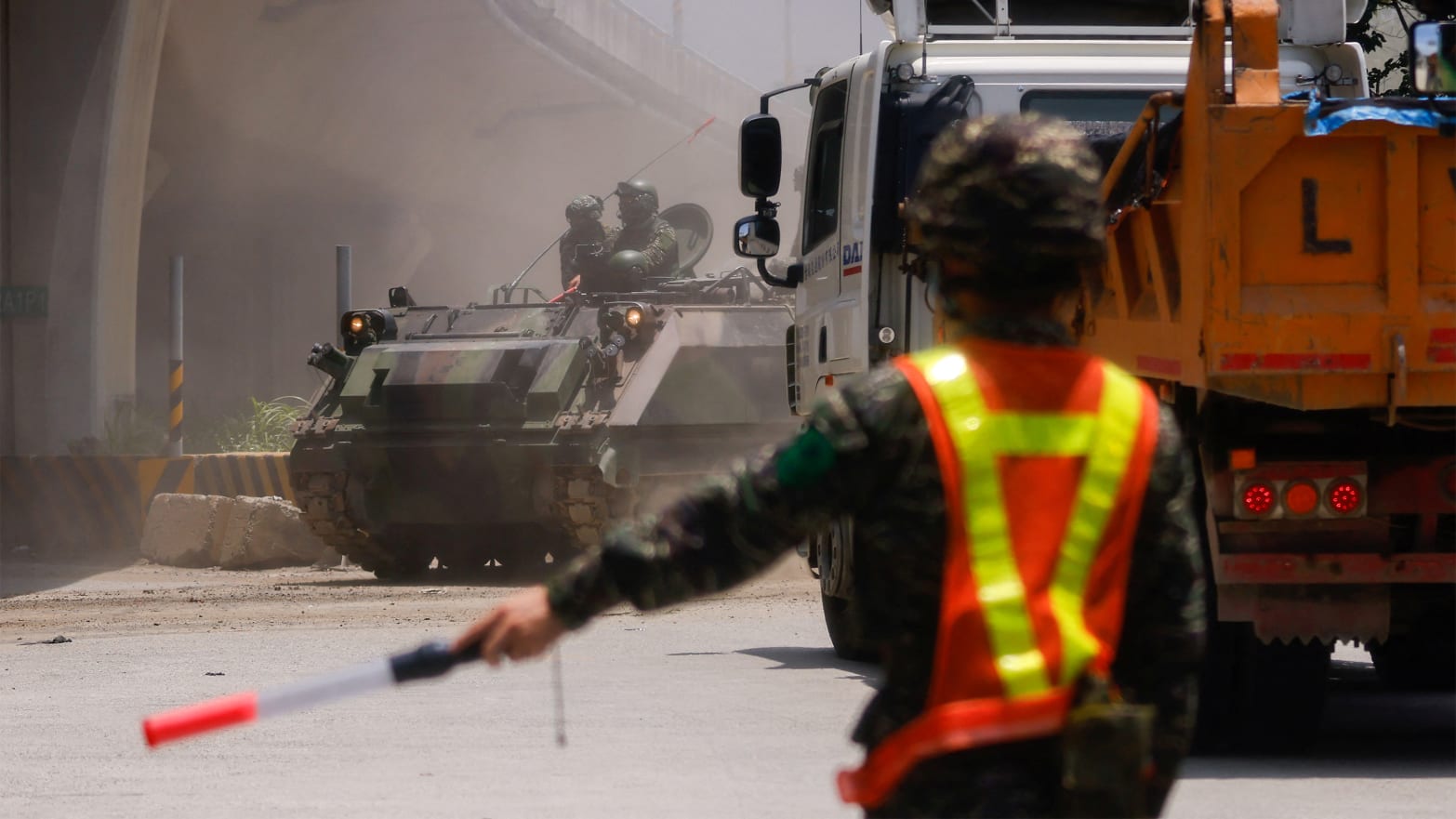

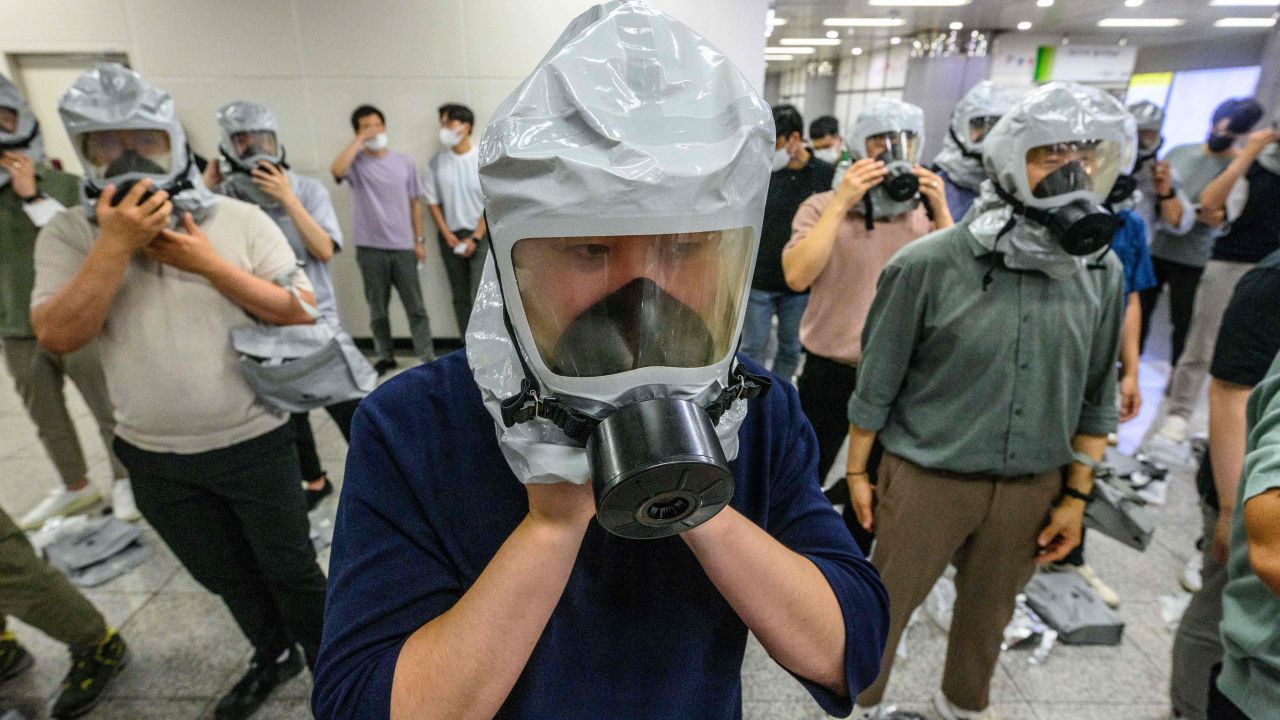
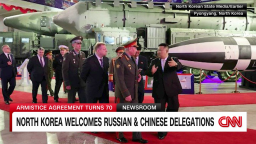


:quality(70)/cloudfront-us-east-1.images.arcpublishing.com/archetype/EKAOSGOFEJFG5K534DW5R7N2PA.jpg)